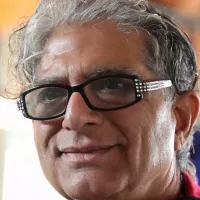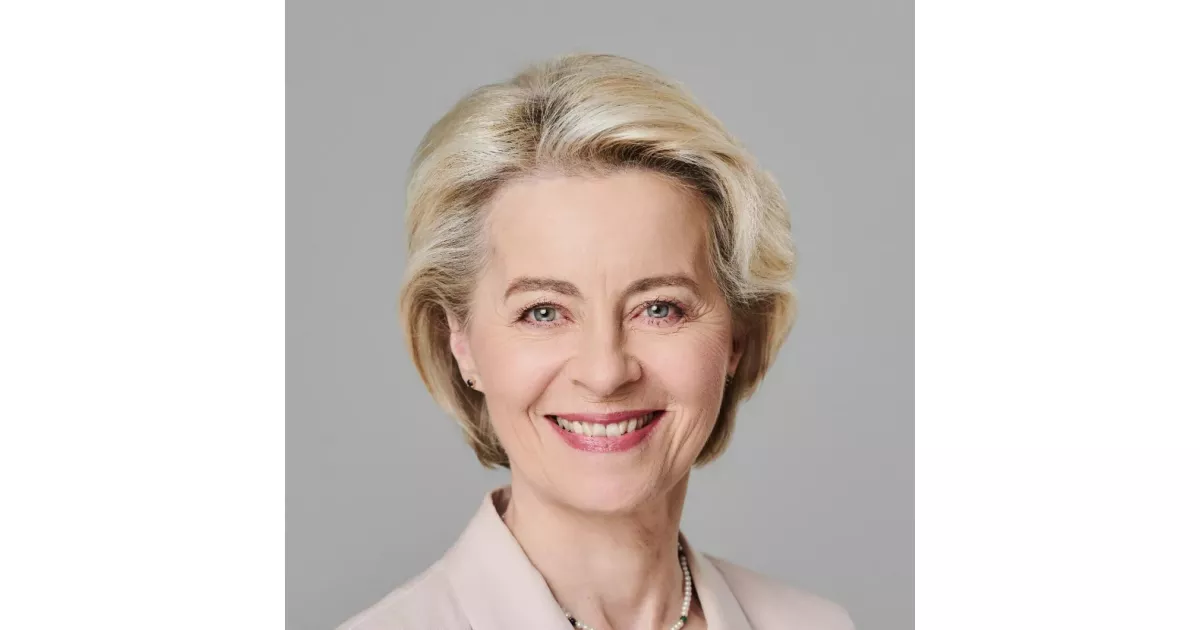Life is full of challenges, and Ursula von der Leyen faced many. Discover key struggles and how they were overcome.
Ursula Gertrud von der Leyen is a prominent German politician currently serving as the 13th president of the European Commission since 2019. Prior to this, she held various significant roles in the German federal government under Angela Merkel's cabinet from 2005 to 2019, including Federal Minister of Defence. A member of the Christian Democratic Union (CDU) and the European People's Party (EPP), she was elected as the EPP's Spitzenkandidat for the 2024 European Parliament elections and was subsequently re-elected to lead the Commission in July 2024.
2010: Merkel's preferred candidate for President of Germany
In 2010, Ursula von der Leyen was Merkel's preferred candidate for President of Germany; however, her nomination was blocked by the conservative wing of the CDU/CSU.
2010: Considered for President of Germany
In 2010, Ursula von der Leyen was considered a front-runner for nomination as President of Germany by the CDU/CSU parties, but Christian Wulff was chosen instead. Reports indicated this was a setback for Merkel, whose preference for von der Leyen was blocked by conservative state premiers.
2013: Campaign for Female Quota
In 2013, Ursula von der Leyen unsuccessfully campaigned for a statutory quota for female participation on supervisory boards of companies in Germany. Her proposal required company boards to be at least 20% female by 2018, rising to 40% by 2023.
August 2014: Categorized Funding Priorities as Defence Minister
In August 2014, Ursula von der Leyen categorized only sensor and cryptotechnology as "vital to national interests", leading to disagreements with Economy Minister Sigmar Gabriel and highlighting Germany's inability to meet NATO requirements, with a significant portion of the German Air Force grounded.
October 2014: Pledged to get grip on military equipment budget
In October 2014, Ursula von der Leyen pledged to get a grip on Germany's military equipment budget after publishing a KPMG report on repeated failures in controlling suppliers, costs and delivery deadlines for projects like the Airbus A400M Atlas transport plane, Eurofighter Typhoon jet and the Boxer armoured fighting vehicle.
December 2014: Fingerprint Cloned by Hacker
In December 2014, a German hacker cloned Ursula von der Leyen's fingerprint using commercially available "VeriFinger" product from Neurotechnology UAB and photographs taken with a standard photo camera.
January 2015: Criticized Airbus over A400M delays
In January 2015, Ursula von der Leyen publicly criticized Airbus over delays in the delivery of A400M military transport planes, complaining about product quality. The ministry agreed to accept 13 million euros in compensation for delays in deliveries of the second and third A400M aircraft.
February 2015: Defended refusal to supply Ukraine with weapons
At the Munich Security Conference in February 2015, Ursula von der Leyen publicly defended the German refusal to supply Ukraine with weapons, emphasizing the need for European unity and arguing that negotiations with Russia were possible.
July 2016: Proposal to allow EU nationals in Bundeswehr met opposition
In July 2016, Ursula von der Leyen's proposal to allow non-German EU nationals to join the Bundeswehr was met by strong opposition, even from her own party.
2016: Sought additional compensation for A400M delays
In 2016, Ursula von der Leyen asked for an additional 12.7 million euros in damages for delays in the delivery of a fourth Airbus A400M military transport plane.
2018: Investigative committee looked into contract awards
Since 2018 an investigative committee organized by Germany's Federal Audit Office has been looking into how contracts worth tens of millions of euros were awarded to external consultancy firms.
December 2019: Accusations of Data Deletion in German Defence Ministry Investigation
In December 2019, German parliamentarians accused the German Defence Ministry of deleting data from Ursula von der Leyen's official phone from when she was Minister of Defence, allegedly torpedoing an investigation into consultant contracts.
2019: Criticism for Leadership Style and Military Readiness
In 2019, former British Secretary of State for Defence Michael Fallon noted Ursula von der Leyen as "a star presence" in NATO and "the doyenne of NATO ministers for over five years". However, she faced domestic criticism for her leadership style, reliance on outside consultants, and continued gaps in military readiness.
March 2020: Commission Decision on Schengen Agreement and COVID-19
In March 2020, Ursula von der Leyen's Commission turned down the idea of suspending the Schengen Agreement and condemned the U.S. decision to restrict travel from coronavirus-affected Europe to the United States, during the COVID-19 pandemic.
April 2021: Allegations of Maladministration Regarding Vaccine Negotiations
In April 2021, it was reported that Ursula von der Leyen had exchanged electronic correspondence with Pfizer CEO Albert Bourla negotiating terms of sale of the COVID-19 vaccine to the European Union. The European Ombudsman accused von der Leyen of "maladministration" for failure to disclose that correspondence upon a FOI request.
September 2021: Response to AUKUS Defence Pact
In September 2021, following the announcement of the AUKUS defence pact between the U.S., the United Kingdom, and Australia, Ursula von der Leyen called the way France was treated "unacceptable" and demanded an explanation, amid strained French-U.S. and French-Australia relations.
December 2021: Discussion on Mandatory COVID-19 Vaccinations
In December 2021, Ursula von der Leyen expressed concern about the unvaccinated portion of the European population and suggested that EU nations should open a debate around making COVID-19 vaccinations mandatory.
2021: Response to European Energy Crisis
In 2021, amidst steep increases in energy prices in Europe, Ursula von der Leyen addressed the situation, citing reliance on gas imports and emphasizing the need for diversifying suppliers and transitioning to clean energy.
September 2023: Migrant Arrivals on Lampedusa
In September 2023, over 120 boats carrying approximately 7,000 migrants from Africa arrived on the Italian island of Lampedusa within a 24-hour period. This prompted Italian Prime Minister Giorgia Meloni to request Ursula von der Leyen's presence to assess the severity of the situation and expedite the implementation of an agreement with Tunisia regarding migrant resources.
May 2024: Legal Challenges and Calls for Candidacy Withdrawal
In early May 2024, a lawyer was denied access to the EPPO's case file related to Ursula von der Leyen. Later that month, there were calls for the European People's Party to withdraw von der Leyen's candidacy for President of the European Commission due to ongoing criminal proceedings.
2024: EPPO Takes Over "Pfizergate" Investigation
In 2024, the European Public Prosecutor's Office (EPPO) took over the investigation from Belgian authorities into "Pfizergate," an incident related to COVID-19 vaccine negotiations, following a complaint citing potential misconduct.
2050: EU climate neutral goal
Some critics blamed a record-breaking surge in energy prices on the European Commission's Green Deal, which aims to make the EU climate neutral by 2050.
Mentioned in this timeline
Ukraine is a country in Eastern Europe the second-largest on...
California is a U S state on the Pacific Coast...
Saudi Arabia officially the Kingdom of Saudi Arabia KSA is...
Pfizer Inc is a multinational pharmaceutical and biotechnology corporation headquartered...
Azerbaijan is a transcontinental and landlocked country located in the...
India officially the Republic of India is a South Asian...
Trending

54 minutes ago Deepak Chopra's Ties to Jeffrey Epstein: Messages Reveal Close Relationship and Travel Invitations.
54 minutes ago Alamance preschool reopens post-storm; Noodle Ju'B offers ramen in Winston-Salem.

2 hours ago SEPTA Adjusts Service in Philadelphia Amidst Intense Blizzard and Heavy Snowfall.
2 hours ago Hawaiian Airlines to reduce widebody planes, update Airbus A330 cabins.

2 hours ago Michael Conforto Signs with Chicago Cubs Amidst Dodgers Free Agent Rumors.

4 hours ago Shakira Announces Free Concert in Mexico City's Zócalo for Her Fans
Popular

Jesse Jackson is an American civil rights activist politician and...

Barack Obama the th U S President - was the...

Bernie Sanders is a prominent American politician currently serving as...

Michael Joseph Jackson the King of Pop was a highly...
The Winter Olympic Games a major international multi-sport event held...

XXXTentacion born Jahseh Dwayne Ricardo Onfroy was a controversial yet...
